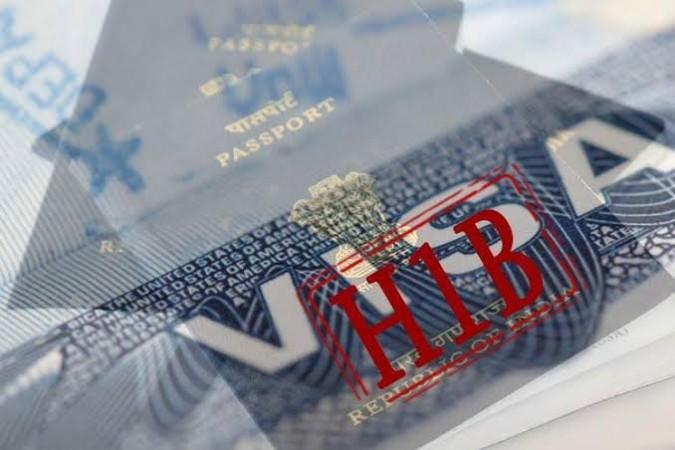Republican Senator Mike Lee announced yesterday that the US government imposes conditional issuance of green cards for immigrants by putting a per-country cap. Green Card is a document issued to foreign immigrants in the US. It is also officially known as a Permanent Resident Card, allowing immigrants to reside in the US permanently.
Mike Lee said that this latest amendment is intended to discriminate and is "inconsistent" with the principles of a merit-based immigration system, which would mean the skilled immigrants Indians, who mostly comprise of the I.T workforce (H1-B visa holders) might have to wait for 200 years before they secure the U.S permanent residency card (green card).
The new immigration system punishes Indian H1-B visa holders
The new immigrant system imposes a 7 percent per-country quota for allotment of the green card. Given the fact that there is a huge backlog of almost one million foreign nationals and accompanying family members lawfully residing in the United States who have been approved for securing Green cards some years back, they are still awaiting the same. It's important to note that the largest number of immigrants are from India.
"I mean, literally one country. This is inconsistent with our founding principles. this is not how we try to do things as Americans, and it's not right. Today, if you're a work-based immigrant from India entering into the EB- Green Card application process, you will wait almost 200 years before your application is even considered solely because of where you were born," the senator said.

About the current green card system
The current green card system solely discriminates on the basis of where the immigrant individual was born. This means some people would have to wait for 200 years, and most people do not even live that long. Lee urged his Senate colleagues to lift the country-cap on green card applications and issuance.
The discrimination is apparent. If you are born in any other country, other than China, in Ghana, Sweden or Indonesia, basically any country other than India, then your green card application will be considered immediately.
Lee sought "unanimous consent that the judicial committee be discharged from further consideration of S 386 and the Senate now proceed to pass the Fairness for High-Skilled Immigrants Act (HR 1044), as passed by the House, that would eliminate the seven per cent per-country ceiling, along with his amendment," as reported by The Mint.
The US Senator further sought that employment-based visas be allocated to prospective immigrants by application date on a first-come, first-serve basis without considering the country of origin. According to the House, HR 1044 would include a three-year transition period from the current system to the new system.
Democratic Senator Dick Durbin opposed Lee's argument for amendments in the reform saying that "it does not include the language to protect immigrants' children who are less than 21 years of age."
The Lee-Durbin agreement: Amendment to secure immigrant workers
The US senator from Utah, Mike Lee was speaking on the legislation moved by Senator Dick Durbin that seeks to protect immigrant workers and their children stuck in the green card backlog.
"Our bipartisan agreement would add critical protections that were not in the original bill for immigrant workers and their immediate family members who are stuck in the backlog. They would be able to switch jobs and travel without losing immigration status. And children of immigrant workers would be protected from ageing out so they will not face deportation," Durbin said. The current system puts families at risk as they wait, year after year to finally make it through this green card backlog.

The Lee-Durbin agreement would make three changes to the Fairness for High-Skilled Immigrants Act. Firstly, it would allow immigrants and their families to file early for a green card, and workers would be allowed to switch jobs and travel without losing immigration status. It would also ensure that the children of immigrant workers do not "age out" from green card eligibility, so they won't face any deportation during their waiting period for a green card.
Implementation of the amendment would set aside a green card for immigrant workers who are unable to "early file" owing to being stuck in a backlog overseas. Finally, a crackdown on abuse of H1-B temporary work visa outsourcing companies will come to fore by prohibiting them from hiring an additional H1-B workforce (more than 50 employees and more than 50% temporary workers).
Companies depend on H1-B visas to hire thousands of employees each year from countries like India and China. While the debate on the best way to resolve the Green card backlog continues, the Lee-Durbin agreement intends to protect children of immigrant workers with a brief three-page bill to ensure they do not "age out" while waiting for a green card to come by.
Understanding the suffering of H1-B workers who migrate to US with their families and apply for a green card, then wait for years to receive permanent residency, qualify their children in reputed US institutions without any American financial federal aid, thus making great sacrifices only to finally realise that by the time their child reaches age 21, they could be deported back and family will be divided.
This breaks the Senator's heart and hence the proposed amendment aims to offer a single specific provision to ensure immigrant workers' children are not punished for a broken US immigration system.

















